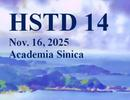Speaker
Description
Radiation-hardened CMOS image sensors are critical for surveillance in nuclear facilities and other high-radiation environments. Under such application conditions, ionizing radiation may rapidly degrade the photodiode performance and significantly compromise the sensor’s imaging capability. In this study, radiation damage effects on photodiodes are reviewed, and several radiation-tolerant photodiode structures are discussed, including diodes with gate-overlap, P+ surrounding, and integrated N+ drains. By modeling the effects of radiation-induced defect densities on internal electric fields and potential barriers, TCAD analysis explains the fundamental principles of radiation-tolerant photodiode structures. Impacts on sensor performance with different geometric parameters, such as overlap length, drain shape, and N-well variants are carefully evaluated with TCAD simulation. Prototype sensors implementing these designs are fabricated and characterized before and after exposure to high total-ionizing-dose irradiation. Preliminary test results will be presented and further optimizations will be discussed.

